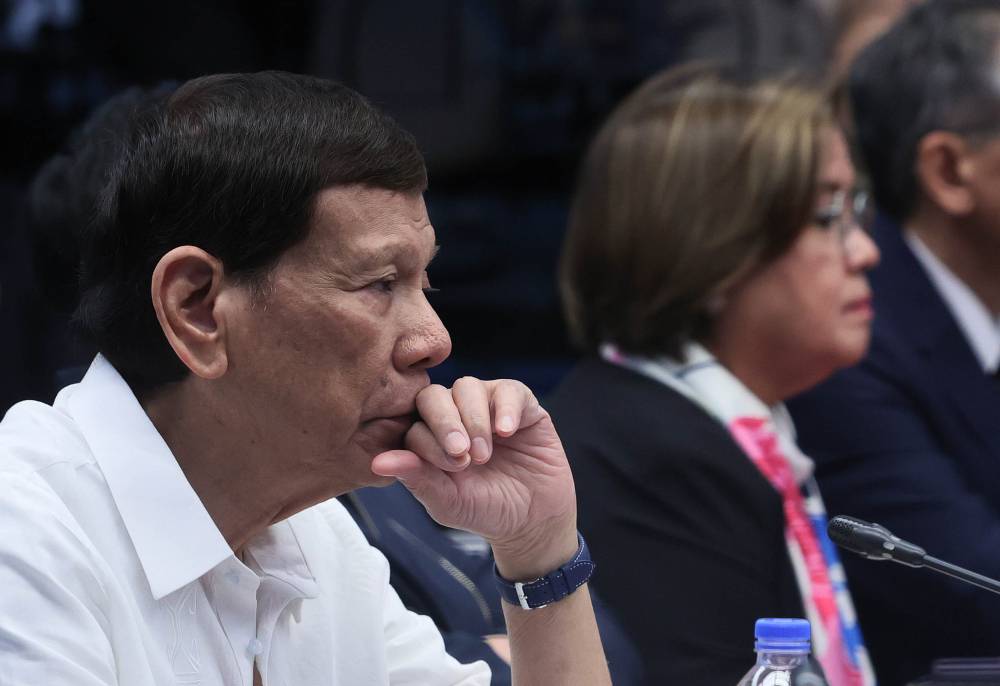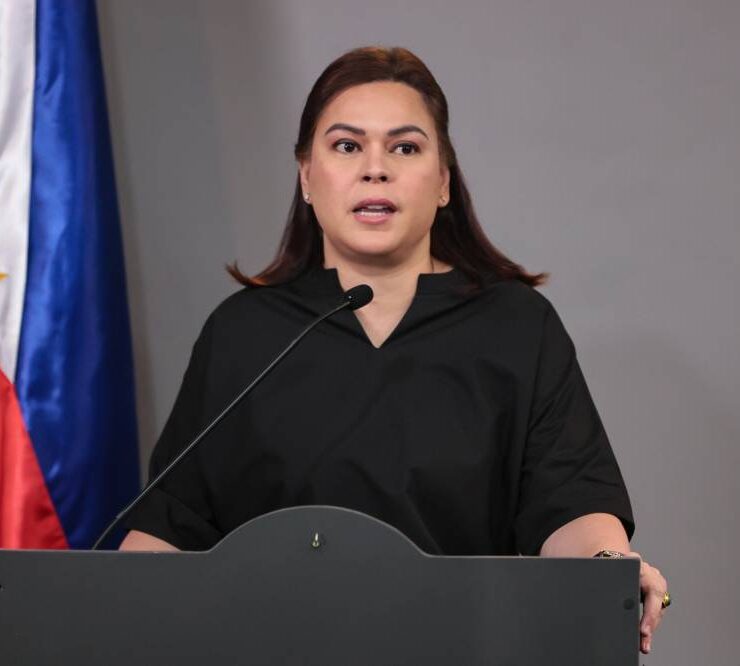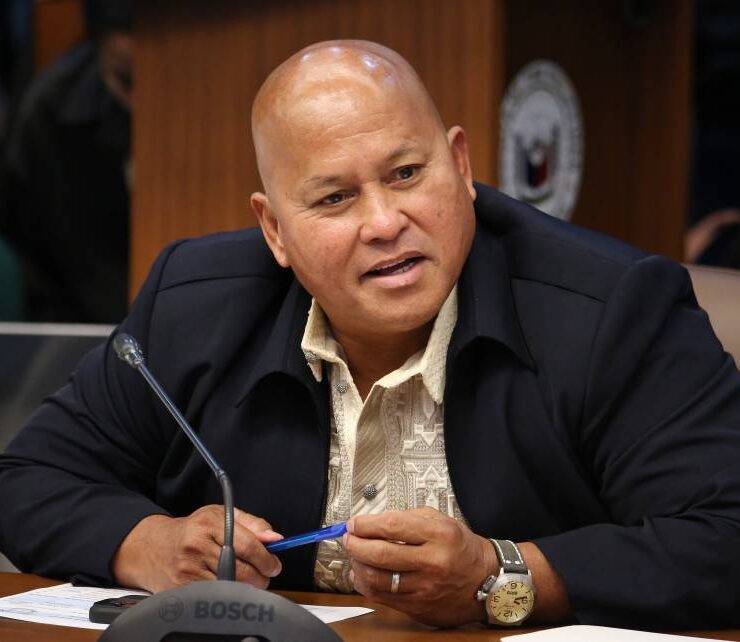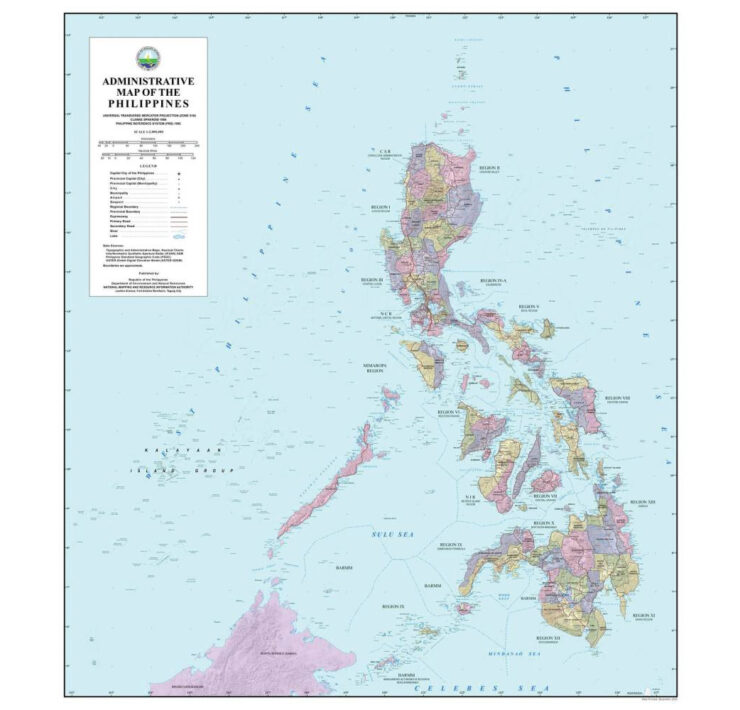Duterte tells Senate: I have a death squad

Former President Rodrigo Duterte on Monday confessed to keeping a seven-member “death squad” that had carried out his orders to liquidate criminals when he was mayor of Davao City, an anticrime strategy that his critics believed was the prototype of the drug war that he had implemented throughout his six-year presidency.
Facing for the first time an inquiry into his administration’s brutal crackdown on narcotics, an unapologetic Duterte also admitted that he had goaded police to “encourage” crime suspects to fight back to justify their killing, incidents that were later referred to as “nanlaban” cases.
The 79-year-old former leader casually spoke about the kill orders that he supposedly gave out to his hit men, but insisted that all liabilities relating to his antidrug policy should fall only on his shoulders.
Replying to questions from Senate President Pro Tempore Jinggoy Estrada, Duterte initially said the senior police officials who had headed the Davao police station were actually members of the dreaded “Davao Death Squad” (DDS), including Sen. Ronald “Bato” dela Rosa.
He, however, quickly backpedaled, claiming he never instructed officers of the Philippine National Police, particularly graduates of the Philippine Military Academy, to take out criminals.
“I have a death squad. It has seven members. But they are not police officers. They are gangsters,” Duterte told Senate Minority Leader Aquilino “Koko” Pimentel III, chair of the Senate blue ribbon subcommittee.
“I ordered the gangsters, ‘Kill them (criminals) because if you will not, I will kill you,’” he said in Filipino. “Why will you sacrifice the policemen?”
Pressed by Pimentel to clarify his remarks, he said it was “not actually a death squad, but people know I’m here when you commit a heinous crime.”
According to Duterte, the term “death squad” was sparingly used by the PNP to refer to groups tasked with “controlling crimes in the city.”
Estrada recalled that Duterte had repeatedly threatened drug suspects that they would end up dead for their involvement in the narcotics trade.
“When you said that ‘I will finish you all, I will kill you all,’ is this the reason why there were so many killings during your time as president?” Estrada asked Duterte.
To which the former President said, “Literally, yes.”
“If you are the mayor or president, when you say ‘Hey, stop with what you are doing because that’s illegal,’ nothing will happen to your city,” he added.
Retired generals
“That senator, the one seated there,” he said, pointing to Dela Rosa, “he’s also (a member) of the death squad.”
Besides serving as Davao police chief, Dela Rosa was tapped by Duterte as PNP chief in 2016, making him the first enforcer of Duterte’s brutal approach against illegal drugs.
Last Oct. 23, Dela Rosa denied any involvement in the DDS.
“It was propagated by the media using that term [DDS]. I’ve been very consistent: DDS is a media creation,” Dela Rosa said, stressing that he had never supported or condoned such a group.
“As far as I’m concerned, DDS does not exist. I do not tolerate a death squad, and if I ever caught one, I would file a case against that person,” Dela Rosa added.
Duterte also pointed to five other retired PNP generals who were present at the hearing as members of his kill team, among them Archie Gamboa, Debold Sinas, Vicente Danao Jr., Catalino Cuy and Romeo Caramat Jr.
But the former police officials just smiled as they rejected Duterte’s claim that they were part of a death squad.
They also said that they were never directed by the former leader to execute criminals.
“Let’s be frank. What I told them was ‘encourage the criminals to fight, encourage them to draw their guns.’ That’s my instruction,” Duterte noted.
“When they do, kill them to end the problem in my city. When I became president, that’s what I said during the command conference in Malacañang. That’s my order,” he added.
Different answers
Fielding questions from Sen. Risa Hontiveros, the former President again gave a conflicting answer, claiming this time that his hit squad was composed of rich individuals who just wanted to kill criminals “because they want businesses to thrive” in Davao.
Duterte mocked his critics and the Department of Justice, challenging them twice to sue him for the drug war deaths.
“I have been killing people for a long time, but they have yet to file any case against me,” Duterte said.
Hontiveros, who has consistently called out Duterte for the drug war killings, engaged him in a heated exchange as she quizzed the former leader for his incriminating statements.
She said his “bombshell” testimony practically implicated several former officials in the killings of drug suspects.
“He, himself, said that he has a death squad. The war on drugs and extrajudicial killings (EJKs) started with the Davao model, which we are now investigating if it was used as a template to scale up (the operations) nationwide,” Hontiveros said.
Sole responsibility
Like what he usually did in his meandering speeches when he was president, Duterte maintained that he only had the best interest of the country in mind when he enforced the drug war.
Despite the deaths of thousands of mostly poor drug suspects, he said he would implement his antinarcotics campaign the same way he had designed and enforced it.
“Do not question my policies because I offer no apologies, no excuses. The war on illegal drugs is not about killing people. It is about protecting the innocent and the defenseless,” he said, adding: “My job as president was never easy and it was not meant to be. I and I alone take full legal responsibility.”
Previous links
In May 2015, before he ran for president, Duterte admitted his links to the DDS.
“Am I the death squad? True. That is true,” Duterte, who was Davao mayor at that time, said during his weekly TV program “Gikan sa Masa, Para sa Masa.”
But Duterte explained that the “admission” was meant to challenge human rights organizations to go to Davao City and pursue their allegations that he was involved in the vigilante group believed to be behind the spate of killings of suspected drug traffickers and other criminals in the city.
He later retracted that statement, telling reporters there were “no Davao death squads.”
In September 2016, the Office of the President denied accusations that Duterte ordered a militia group to carry out EJKs while he was mayor of Davao City.
This response was after Edgar Matobato made claims before a Senate committee that he was part of the 300-member DDS allegedly operating on the orders of Duterte.
In February 2017, after retired policeman Arturo Lascañas admitted the existence of the DDS and said that Duterte gave orders not only to kill criminals but also his political opponents, Duterte admitted he knew Lascañas and that he already admitted to ordering the Davao City police to go after criminals.
In a separate instance that same month, Duterte also mocked witnesses who claimed that he had ordered vigilantes and policemen to kill drug suspects when he was still mayor of Davao City, saying the killings were not just “by the hundreds” and it “should have been thousands already.” —WITH A REPORT FROM INQUIRER RESEARCH





















